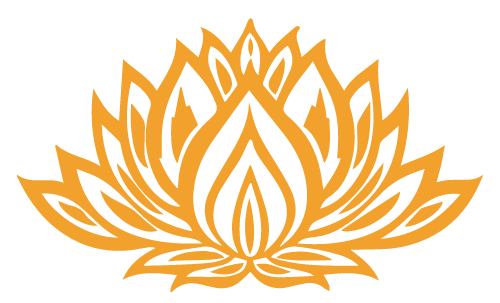DEATHWALKER'S GUIDE TO LIFE SEASON 2
EPISODE 6
Death Matters NZ
July 24, 2022
EPISODE 6
Death Matters NZ
Death in Print: 'Thanksgiving in Mongolia' by Ariel Levy, Meet: Christchurch Death Cafe and Death Matters NZ founder Melanie Mayell Death on Screen: Baz Luhrmann's 'Elvis'
Listen to Episode 6 on the following podcast platforms
Or, if you've already listened to the show, scroll down for more info and links . . .
DEATH IN PRINT
'Thanksgiving in Mongolia' by Ariel Levy




'Thanksgiving in Mongolia' is an essay by Ariel Levy, which was published in The New Yorker on 10 November 2013.
The story opens with Levy recalling a childhood game she played with her parents, one of the few occasions she felt neither ostracised nor ill at ease. Of course, as she writes, the other natural habitat for a child who loves words and adventures is the page. This young literary explorer grows up to become a writer. She also proceeded to spend the next 20 years putting herself in foreign surroundings as frequently found herself.
And so Levy finds her herself on assignment in Mongolia, when she is five months pregnant. Her doctor told her that since she was still in the second trimester, it would be fine to fly. It would be, she thought, her last big trip for at least a year, maybe two. Other people expressed concern, but she liked the idea of being the kind of girl who’d go to the Gobi Desert pregnant, just as she had, at the age of 22, liked the idea of being the kind of girl who’d go to India by herself.
On her first night in Ulaanbaatar, in outer Mongolia, she started feeling a little strange so she went home early then woke the following morning with an insistent pain in her abdomen. She emailed her local contact to get his doctor’s phone number, then went out to interview people.
At dinner on the second night, she writes, ‘something was happening inside me’. She ran back to her room. The pain was unbearable. She remembers thinking, This is going to be the craziest shift in history. Sometime later, there was another person on the floor in front of her. ‘My baby,’ she writes, ‘was pretty as a seashell.’
Of course, it would be impossible to tell you why I’m talking about this essay without revealing what is a major spoiler. The baby died before the ambulance arrived.
Levy had, in 10 minutes, become a mother. But there was no child. Yet it had flicked a switch in her head. She was a different woman now. She realised she, just like everyone else, could not outrun mother nature.
I recommend this essay to you because of Levy’s uncompromising honesty and the way she uses concrete language to bring alive what could otherwise be a very abstract retelling of this tragic event. In Levy’s capable voice, she brings the reader with her on her journey of adventure and heartbreak at the edge of the earth.
The essay later grew into her 2017 memoir, The Rules Do Not Apply. And Ariel Levy is now in a relationship with Doctor John Gasson, who she introduces in the essay as 'confusingly, the handsomest man in the world [who] came through the door and said he was my doctor'.
The story opens with Levy recalling a childhood game she played with her parents, one of the few occasions she felt neither ostracised nor ill at ease. Of course, as she writes, the other natural habitat for a child who loves words and adventures is the page. This young literary explorer grows up to become a writer. She also proceeded to spend the next 20 years putting herself in foreign surroundings as frequently found herself.
And so Levy finds her herself on assignment in Mongolia, when she is five months pregnant. Her doctor told her that since she was still in the second trimester, it would be fine to fly. It would be, she thought, her last big trip for at least a year, maybe two. Other people expressed concern, but she liked the idea of being the kind of girl who’d go to the Gobi Desert pregnant, just as she had, at the age of 22, liked the idea of being the kind of girl who’d go to India by herself.
On her first night in Ulaanbaatar, in outer Mongolia, she started feeling a little strange so she went home early then woke the following morning with an insistent pain in her abdomen. She emailed her local contact to get his doctor’s phone number, then went out to interview people.
At dinner on the second night, she writes, ‘something was happening inside me’. She ran back to her room. The pain was unbearable. She remembers thinking, This is going to be the craziest shift in history. Sometime later, there was another person on the floor in front of her. ‘My baby,’ she writes, ‘was pretty as a seashell.’
Of course, it would be impossible to tell you why I’m talking about this essay without revealing what is a major spoiler. The baby died before the ambulance arrived.
Levy had, in 10 minutes, become a mother. But there was no child. Yet it had flicked a switch in her head. She was a different woman now. She realised she, just like everyone else, could not outrun mother nature.
I recommend this essay to you because of Levy’s uncompromising honesty and the way she uses concrete language to bring alive what could otherwise be a very abstract retelling of this tragic event. In Levy’s capable voice, she brings the reader with her on her journey of adventure and heartbreak at the edge of the earth.
The essay later grew into her 2017 memoir, The Rules Do Not Apply. And Ariel Levy is now in a relationship with Doctor John Gasson, who she introduces in the essay as 'confusingly, the handsomest man in the world [who] came through the door and said he was my doctor'.
FOR MORE INFORMATION ABOUT ARIEL LEVY AND HER BOOK
Read 'Thanksgiving in Mongolia'.
Find out more about The Rules Do Not Apply here.
Find out more about Ariel Levy.
Follow Ariel Levy on Instagram.
Read 'Thanksgiving in Mongolia'.
Find out more about The Rules Do Not Apply here.
Find out more about Ariel Levy.
Follow Ariel Levy on Instagram.
KŌRERO / CONVERSATION
Meet Melanie Mayell

Melanie Mayell is the author of two self-published books, Thank You: Living in Gratitude (2014), and Goodbye: For Times of Sadness and Loss (2012). Both feature photographs she took during her travels around the world, paired with quotes, poems and sayings. Thank You emerged from her ‘red album’ and Goodbye from her 'white album'. In Goodbye, Melanie invites us to feel our own sorrows more deeply. It's a beautiful keepsake for anyone, but a particular touchstone for someone who is feeling sad and in need of heartfelt comfort.
In early 2016, Melanie took part in the inaugural Deathwalker Training programme with Zenith Virago, and soon after started hosting the Christchurch Death Cafe. In 2019, she hosted the first Death Matters NZ conference, which ran again in 2020. After it was cancelled it last year due to Covid, the third Death Matters conference will take place on Friday 23 September, at Tūranga, the Christchurch central library.
Melanie couldn't decide on just one farewell song. She nominated 'All My Tears' by Ane Brun, 'Way Down We Go' by KALEO, Jeff Buckley's version of 'Hallelejah' and 'Breathless' by Nick Cave as songs she would like played at her funeral or wake. Listen to the songs in our 'Farewell songs' playlist.
In early 2016, Melanie took part in the inaugural Deathwalker Training programme with Zenith Virago, and soon after started hosting the Christchurch Death Cafe. In 2019, she hosted the first Death Matters NZ conference, which ran again in 2020. After it was cancelled it last year due to Covid, the third Death Matters conference will take place on Friday 23 September, at Tūranga, the Christchurch central library.
Melanie couldn't decide on just one farewell song. She nominated 'All My Tears' by Ane Brun, 'Way Down We Go' by KALEO, Jeff Buckley's version of 'Hallelejah' and 'Breathless' by Nick Cave as songs she would like played at her funeral or wake. Listen to the songs in our 'Farewell songs' playlist.
FOR MORE INFORMATION ABOUT MELANIE MAYELL & DEATH MATTERS NZ
Find out more about Melanie Mayell.
Find out more about Death Matters NZ.
Follow Melanie Mayell on Instagram.
Join the Christchurch Death Cafe group on Facebook.
Find out more about Melanie Mayell.
Find out more about Death Matters NZ.
Follow Melanie Mayell on Instagram.
Join the Christchurch Death Cafe group on Facebook.
DEATH ON SCREEN
'Elvis' by Baz Luhrmann
Elvis is the extraordinary new biopic directed by Australian filmmaker Baz Luhrmann.
I’ve been a huge fan of Luhrmann since his 1998 hit, the spoken word song based on an essay, 'Everybody's free to wear sunscreen'. Then there are his fabulous trilogy of early films, Strictly Ballroom in 1992, Romeo & Juliet in 1999, and Moulin Rouge in 2001. It was a long wait for Luhrmann fans like me until Australia, starring Nicole Kidman and Huge Jackman, came out in 2008. But it's felt like an even longer wait until now, with what I believe is his first film since The Great Gatsby, which was released in 2013. Finding out the film was about the King himself, Elvis Presley, perhaps explains why we’ve had to wait so long.
The film follows the life of the rock and roll icon, singer and actor, told from the perspective of his manager, Colonel Tom Parker, who is played by Tom Hanks in a fat suit. The opening scenes are chaotic, carnvial – almost comic-like. Thankfully, the erratic and experimental shots eased into more conventional – and watchable – cinematography once Luhrmann settled into telling the story of Elvis’s rise to fame.
Relatively unknown actor Austin Butler plays the title role, after impressing Luhrmann with an audition tape of himself singing 'Unchained Melody'. You soon forget you are watching an actor. It’s really quite an extraordinary performance and I will eat my shorts if he doesn’t get nominated for Best Actor at next year’s Oscars.
Olivia DeJonge plays Priscilla Presley, who apparently has some input into and gave her blessing for this version of the story of Elvis’s life.
Spoiler alert – it seems to be a theme in today’s show – but, guess what, Elvis dies. Luhrmann does not choose to go down rabbit holes and explore rumours to the contrary. The story packs no punches when showing the perils of putting your life into another person’s hands. As Colonel Parker says at the beginning of the film, Elvis became his destiny. In doing so, Elvis’s destiny was no longer his own.
I’ve been a huge fan of Luhrmann since his 1998 hit, the spoken word song based on an essay, 'Everybody's free to wear sunscreen'. Then there are his fabulous trilogy of early films, Strictly Ballroom in 1992, Romeo & Juliet in 1999, and Moulin Rouge in 2001. It was a long wait for Luhrmann fans like me until Australia, starring Nicole Kidman and Huge Jackman, came out in 2008. But it's felt like an even longer wait until now, with what I believe is his first film since The Great Gatsby, which was released in 2013. Finding out the film was about the King himself, Elvis Presley, perhaps explains why we’ve had to wait so long.
The film follows the life of the rock and roll icon, singer and actor, told from the perspective of his manager, Colonel Tom Parker, who is played by Tom Hanks in a fat suit. The opening scenes are chaotic, carnvial – almost comic-like. Thankfully, the erratic and experimental shots eased into more conventional – and watchable – cinematography once Luhrmann settled into telling the story of Elvis’s rise to fame.
Relatively unknown actor Austin Butler plays the title role, after impressing Luhrmann with an audition tape of himself singing 'Unchained Melody'. You soon forget you are watching an actor. It’s really quite an extraordinary performance and I will eat my shorts if he doesn’t get nominated for Best Actor at next year’s Oscars.
Olivia DeJonge plays Priscilla Presley, who apparently has some input into and gave her blessing for this version of the story of Elvis’s life.
Spoiler alert – it seems to be a theme in today’s show – but, guess what, Elvis dies. Luhrmann does not choose to go down rabbit holes and explore rumours to the contrary. The story packs no punches when showing the perils of putting your life into another person’s hands. As Colonel Parker says at the beginning of the film, Elvis became his destiny. In doing so, Elvis’s destiny was no longer his own.
'Elvis'
Directed by Baz Luhrmann
Listen to previous Season 2 episodes
OUT APRIL 24, 2022
EPISODE 1
Death in Print: Death and its Terrible, Horrible, No Good, Very Beautiful Lessons by Becky Aud-Jennison, Meet: Deathwalker and author Becky Aud-Jennison, Death on Screen: 'Good Grief'
OUT MAY 8, 2022
EPISODE 2
Death in Print: What Days Are For by Robert Dessaix, Meet: Septuagenerian climate activist Bill McEwan, Death on Screen: Nelson Poetry Map featuring Bill Manhire's poem, 'Kevin'
OUT MAY 22, 2022
EPISODE 3
Death in Print: An Hour to Live, An Hour to Love by Richard Carlson, Meet: Storyteller Tanya Batt, Death on Screen: Imagined Worlds website
OUT JUNE 5, 2022
EPISODE 4
Death in Print: Wild Darkness by Eva Saulitis, Meet: Natural burial pioneer Dawn Jones and her daughter Sylvia Bauer Death on Screen: NZ Natural Burial directory
OUT JULY 3, 2022
EPISODE 5
Death in Print: Actions & Travels: How Poetry Works by Anna Jackson, Meet: Singer/songwriter Nick Feint Death on Screen: 'Good Bones' by Maggie Smith
Catch up on Season 1 episodes
OUT OCTOBER 3, 2021
EPISODE 2
Death in Print: Before You Knew My Name, Meet: author Jacqueline Bublitz, Death on Screen: 'Dead to Me'
OUT OCTOBER 17, 2021
EPISODE 3
Death in Print: Listen: How to Find the Words for Tender Conversations, Meet: author Kathryn Mannix, Death on Screen: 'Phone of the Wind'
OUT OCTOBER 31, 2021
EPISODE 4
Death in Print: No Pressure, No Diamonds, Meet: legal executive Marie Austin, Death on Screen: 'I Told You I Was Ill: the Life & Legacy of Spike Milligan'
OUT OCTOBER 31, 2021
EPISODE 4
Death in Print: No Pressure, No Diamonds by Teri Dillion, Meet: legal executive Marie Austin, Death on Screen: 'I Told You I Was Ill: The Life and Legacy of Spike Milligan'
OUT NOVEMBER 14, 2021
EPISODE 5
Death in Print: H is for Hawk by Helen Macdonald, Meet: poet & playwright Donna McLeod, Death on Screen: 'Living with Ghosts'
OUT NOVEMBER 28, 2021
EPISODE 6
Death in Print: Mortals: How the Fear of Death Shaped Human Society by Rachel & Ross Menzies, Meet: psychologist and author Rachel Menzies, Death on Screen: Lisel Mueller on 'The Marginalian'
OUT DECEMBER 12, 2021
EPISODE 7
Death in Print: No One is Talking About This by Patricia Lockwood, Meet: author Bonnie Etherington, Death on Screen: 'My Beautiful Broken Brain'







